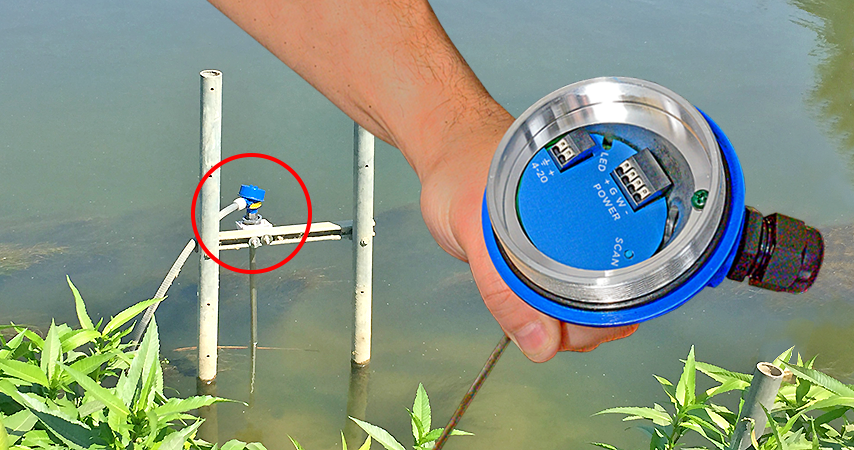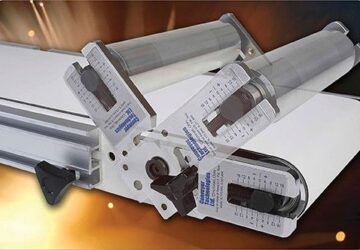Water damage can cause significant damage to homes and commercial properties, resulting in costly repairs and business downtime. One effective way to prevent water damage is by using reliable water level sensors to monitor and manage water levels in tanks, reservoirs, and pipes. In this article, we will discuss the importance of reliable water level sensors in preventing water damage and ensuring overall safety. Water damage can be costly and time-consuming to repair, making the prevention of such damage crucial in many industries. Accurate and reliable water level sensors can detect changes in water levels early on, allowing operators to take corrective action before damage occurs. Water level sensors are used in a wide range of applications, from wastewater treatment to oil and gas production.
1. The Importance of Reliable Water Level Sensor
Water level sensor technology is essential in preventing water damage and ensuring safety, as it provides accurate and reliable measurements of liquid levels in tanks, reservoirs, and other applications. Reliable water level sensors are essential for preventing water damage and ensuring safety in industrial and commercial applications. By accurately monitoring water levels, operators can prevent equipment failure and downtime, avoid overflows and flooding, and reduce the risk of costly water damage.
In industrial applications, water level sensors are used to monitor tanks, reservoirs, and pipes, ensuring that water levels are maintained at the appropriate level. If the water level falls below or rises above a set point, the water level sensor will trigger an alert, notifying operators of the issue.
In commercial applications, water level sensors are used to monitor the water level in swimming pools, aquariums, and medical equipment. In swimming pools and aquariums, water level sensors are used to maintain a consistent water level, preventing damage to pumps and filters. In medical equipment, water level sensors are used to ensure that the equipment is functioning properly and that patients are receiving the correct number of fluids.
2. Types of Water Level Sensors
There are different types of water level sensors available, including ultrasonic sensors, float sensors, and pressure sensors. Ultrasonic sensors use sound waves to measure water levels, while float sensors use a buoyant object that moves up and down with the water level. Pressure sensors measure water levels by sensing the pressure of the water on a sensor. Each type of sensor has its own advantages and disadvantages, and the choice of sensor will depend on the specific application.
Ultrasonic sensors are ideal for measuring water levels in large tanks and reservoirs, as they are accurate and reliable. They work by emitting high-frequency sound waves that bounce off the surface of the water and back to the sensor. The time it takes for the sound waves to bounce back to the sensor is used to determine the water level.
Float sensors are ideal for measuring water levels in smaller tanks and reservoirs. They work by using a float that moves up and down with the water level. When the water level rises, the float rises with it, triggering an alert when it reaches a predetermined level.
Pressure sensors are ideal for measuring water levels in pipes and other closed systems. They work by sensing the pressure of the water on a sensor, which is then used to determine the water level.
3. Factors to Consider When Choosing a Water Level Sensor
When selecting a water level sensor, it’s important to consider factors such as the type of liquid being measured, the environment where the sensor will be used, and the level of accuracy required. For example, if the liquid being measured is corrosive, a sensor made from a corrosive-resistant material may be necessary. Similarly, if the sensor is used in a harsh environment, a sensor with a higher degree of protection may be required.
Other factors to consider include the mounting type, the power requirements, and the output signal of the sensor. Some sensors require external power, while others are self-powered. Some sensors output an analog signal, while others output a digital signal. The choice of sensor will depend on the specific application and the requirements of the system.
4. Benefits of Reliable Water Level Sensors
One of the main benefits of using reliable water level sensors is that they can help prevent costly water damage. By providing real-time data and alerts, operators can quickly respond to any changes in water levels and take action before any damage occurs. This can save time and money, as well as prevent potential safety hazards.
Another benefit of reliable water level sensors is that they can improve the efficiency of water management systems. By providing accurate and timely information, operators can optimize water usage and minimize waste. This can result in significant cost savings and environmental benefits. Preventing water damage can save businesses time and money, as well as prevent safety hazards to employees and the public. Optimizing water usage can result in significant cost savings and environmental benefits, making reliable water level sensors an important tool for water management. Compliance with regulatory requirements is crucial for many industries, as failure to comply can result in fines and legal liabilities.
Reliable water level sensors can also help to ensure compliance with regulatory requirements. In many industries, there are strict regulations governing the management of water and other fluids. By using reliable water level sensors, operators can ensure that they follow these regulations, avoiding potential fines and legal liabilities.
Finally, reliable water level sensors can help to improve overall safety. By accurately monitoring water levels, operators can prevent overflows and flooding, which can pose a safety hazard to employees and the public. Additionally, by ensuring that medical equipment is functioning properly, water level sensors can help to prevent potential health risks to patients.
Conclusion
In conclusion, reliable water level sensors are essential for preventing water damage and ensuring safety in industrial and commercial applications. By accurately monitoring water levels, operators can prevent equipment failure, downtime, and costly water damage. They can also improve the efficiency of water management systems, ensure compliance with regulatory requirements, and improve overall safety. When selecting a water level sensor, it’s important to consider factors such as the type of liquid being measured, the environment where the sensor will be used, and the level of accuracy required.








